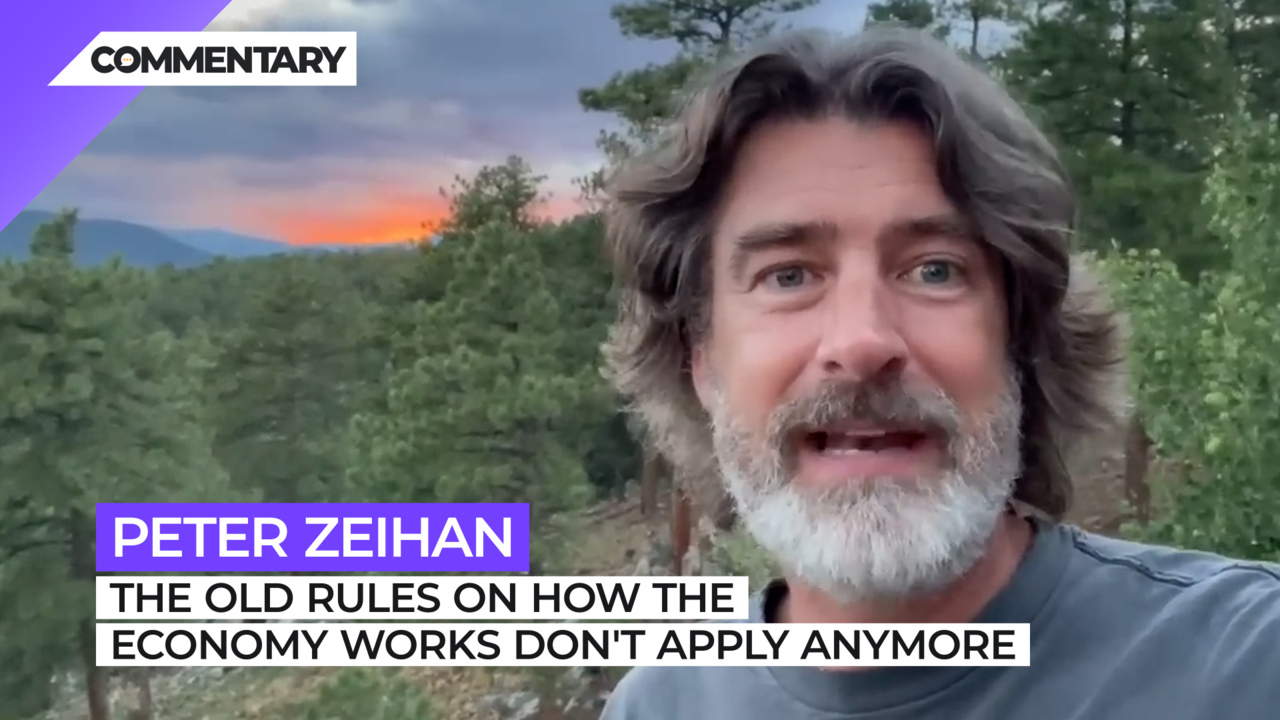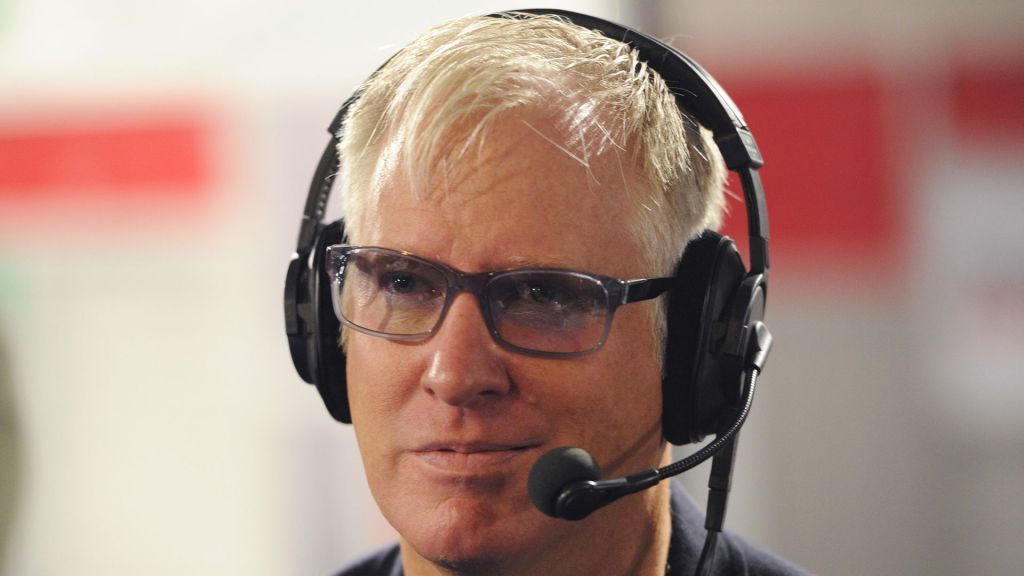
Commentary
-
Our commentary partners will help you reach your own conclusions on complex topics.
TITLE: Are we in a recession? It’s hard to tell because the world is changing
Hey everybody, Peter Zeihan here coming to you from Colorado. By the time you see this, I will be long gone and I will be on a month-long backpacking trip in the Sierra National Forest, Yosemite and the Hoover wilderness. I’ll be returning the first week of September and I’m probably going to be recording a few things along the way. So I’ll come back with some content for you guys. But I wanted to send you off with a little talk about this idea that we’re in recession or about to be in recession. My first…the bottom line, I don’t think we’re there yet. There’s definitely some things to be concerned about. Obviously, inflation is a big issue but we’re getting in a weird, weird, weird place. Consumer spending is high, nearly at record levels. Employment is high, nearly at record levels. Unemployment is low, nearly at record levels. Business investment is high, almost at record levels. Consumer activity, industrial activity…it all looks great.
Most of the negative activity we’re seeing is in the financial sector. And if you guys remember back to Alan Greenspan, he was famous for making policy that deliberately ignored the financial sector because it’s volatile by nature. It wasn’t until we got to Ben Bernanke and Federal Reserve chairs since that it became a little bit more of an issue. Now, that doesn’t mean that that’s good or bad or otherwise, but Greenspan did preside over the longest stretch of growth in American history. Cue the hate mail. I can just see it already.
Anyway, my point isn’t that we are or are not in recession, although I don’t think we are at this moment. The point is that the relationships between all of the tools that we use to regulate the economy and the economy, might not apply anymore. For the bulk of human history, well, modern human history, the last 500 years, it’s all about figuring out how you can maximize your share of a pie that is steadily growing. For 500 years, we’ve had steadily growing population growth, turning to explosive population growth in the industrial – excuse me – in the industrial era that postdates World War II. And as long as there are more people, as long as there is more technology, growth is easy. And regulating inflation and growth and employment, all the rest in that environment is something we have a lot of experience in. But that’s not the case anymore.
The global population is in the process of peaking. The advanced world’s population has long since peaked. China’s population probably peaked over a decade ago. The average American by old stats became younger than the average Chinese back in 2017 or 2018, with the new data out of China suggesting it was several years before that. If the pie is no longer getting bigger, then it’s not clear that any of our measures, whether it’s for inflation or growth or investment or otherwise, are even relevant anymore…much less tools like interest rates.
So I’m not saying this to specifically scare you, although that is a perfectly reasonable takeaway. My point is to give policymakers a little bit of a break. They are literally making this up as we go along, because we are making this up as we go along. Does that mean I’m putting my finger in any particular asset? No, I’m not a CFA, so take that for what it is. Okay. That’s it for me. That’s a sunset, not a volcano in the background. I don’t live in Iceland. Okay. Take care. Bye. See you in a month.
-
Global warming won’t impact Russian-Chinese shipping
The seas above Russia’s northern coastline are too frozen for shipping, but some have wondered whether global warming might change that in the decades to come. If those seas were to become navigable for commercial shipping, new direct routes between Russia and China could theoretically open up. Straight Arrow News contributor Peter Zeihan throws more…
-
Can other nations replicate success of US shale revolution?
The “shale revolution” has provided the United States with a bountiful domestic supply of oil. But extracting oil from shale is a highly technical process, and it is also dependent on specific geological formations. Straight Arrow News contributor Peter Zeihan tackles the question of whether or not other nations might be able to replicate the…
-
Peace between Israel and Iran, at least for now
A series of recent airstrikes between Israel and Iran inflamed fears of a wider regional war erupting in the Middle East. That concern now seems to have paid off, after third-party countries around the world successfully intervened and talked down military hardliners in both Israel and Iran in order to avoid such an outcome. Israel’s…
-
Global internet in a precarious state, but that could be a positive
Over 500 underwater cables span over 870,000 miles worldwide, serving as the foundation of the modern global internet. Despite their critical role in facilitating communication, these cables often go unnoticed, even as the amount of data transmitted through them has surged. So what happens if the cables fail? Straight Arrow News contributor Peter Zeihan contends…
-
Water wars are an unlikely future
Foreign policy writers have long warned of the possibility that clean drinking water might become “the next oil” — that is, that major wars might be fought around the globe over access to potable water. With expanding populations and finite water supplies, these critics argue that humans will inevitably fight each other to secure drinking…
Latest Stories
-
 DVIDS
DVIDS
Aid package to Ukraine ‘not aimed at achieving victory’
-
 AP Images
AP Images
Poll: Majority of Americans back mass deportation of undocumented immigrants
-
 Getty Images
Getty Images
Trump lawyers admit some actions alleged in indictment are private, not official
-
 Getty Images
Getty Images
EPA coal plant rule cuts emissions 90%, removes 17M homes worth of power
-
 AP Images
AP Images
As 2020 election lawsuits grow, Gateway Pundit files for Chapter 11 bankruptcy
Popular Opinions
-
In addition to the facts, we believe it’s vital to hear perspectives from all sides of the political spectrum.
Latest Opinions
In addition to the facts, we believe it’s vital to hear perspectives from all sides of the political spectrum. We hope these different voices will help you reach your own conclusions.
The opinions published in this section are solely those of the contributors and do not reflect the views of Straight Arrow News.

















Latest Commentary
We know it is important to hear from a diverse range of observers on the complex topics we face and believe our commentary partners will help you reach your own conclusions.
The commentaries published in this section are solely those of the contributors and do not reflect the views of Straight Arrow News.
Peter Zeihan
Geopolitical StrategistCan other nations replicate success of US shale revolution?
Peace between Israel and Iran, at least for now
Global internet in a precarious state, but that could be a positive
Dr. Frank Luntz
Pollster and Political Analyst‘Take the job seriously’: Why Americans are fed up with Congress
‘If we can shrink it, it will stop growing’: Americans talk debt, deficit
‘I don’t think they care’: Undecided voters explain their reasons
Pete Ricketts
U.S. Senator for Nebraska